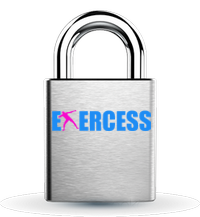Lessons in Touch Typing
I learned to touch type a long time ago, before computers were around. It was a skill I wanted to learn and I was willing to put in the time and effort necessary to learn it. I had always admired the way some people could type without constantly looking at the keyboard and I wanted to be able to do it as well. I vaguely remember reading about how to go about it, although I can’t remember the book (probably Teach Yourself Touch Typing). There were exercises, and the only way you could progress successfully was by taking them in turn, patiently.
I’ve often thought about that learning process because it taught me a lot, besides touch typing. I put in a certain amount of work every day, and I progressed slowly (this was way before all the’ typing tutors’ and apps!). I remember I started to follow the exercises, which in the early stages were primarily repetitive and boring, and within a few days I decided I’d stick with it for 100 days. It seemed a reasonable amount of time to achieve what I wanted, and I stuck with the plan. Three months, I thought, and I’d have it cracked!
Steady progress
I typed one sheet of work every day, that’s all. The very first few days were just repeating certain groups of letters again and again, such as asdf and jkl; till you built up the ability to find the letters easily just by placing your fingers on the home keys at the start and ‘feeling’ where the letters were. Like I said, boring. But it worked. Within a matter of days I’d learned where the letters were on all three rows and I was able to progress to typing short words. Repeatedly!
I’m not going to drag you along, painfully slowly, through the whole 100 days, but the fact is I was typing proper words fairly quickly, and soon progressing to sentences. Doesn’t sound exciting, I know, but it was a great learning experience. I was moving from staring at the keyboard and picking each and every letter to just almost miraculously finding them by touch.
Here’s a few of the things I learned by studying touch typing:
- Have a plan, and stick to it
- When you make mistakes, just keep going. There will always be mistakes
- Work on it every day, even when you’re not in the mood
- Believe you can do it, even when progress seems painfully slow
- Do a set amount of work every day, minimum (I settled on a single page of type, but that was hard work in the early stages)
- Be prepared to be bored! It’s worth it in the end
- Allow your brain time to assimilate new skills
- Remind yourself that this is a skill that will benefit you for life. It’s that kind of thing that keeps you going
- You don’t have to be perfect. I don’t deal with numbers very much, so I never spent a lot of time practising using the number keys. For me, it just wasn’t worth it
- Focus on the most important stuff and leave the rest alone (the numbers again!)

Sorry ... MEMBERS ONLY!
UNLOCK FOR FULL EXERCESS!EXERCESS is an online community of people who want to seriously improve their health and fitness, both mental and physical.
JOIN FREE TODAY!
… and get complete and unfettered access to an absolute goldmine of valuable information.
Already a member? Sign in!
